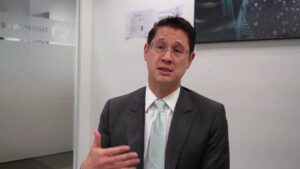
China’s aging population is leaving the labor force while dropping consumer confidence discourages youngsters from marrying or having children. Business analyst Shaun Rein tells Reuters the country is heading for a demographic disaster, and raising the pension age is one inevitable measure the government should take.
Reuters:
A record low birth rate in 2023 and a wave of health crisis-related deaths resulted in a second consecutive year of population decline, accelerating concerns about China’s demographic downturn.
Large groups of the 1.4 billion people living in the world’s second-largest economy will exit the labor pool and age past a prime period of their lives for consumption, exacerbating structural imbalances that policymakers have vowed to address.
“The world should be worried about China’s economic slowdown. It’s going to impact the profits of the world’s largest companies. When Chinese consumers are cutting back on their spending, that’s going to impact the Starbucks, the Nike’s, the Apples of the world,” Rein told Reuters.
More – including a video – at Reuters.
Shaun Rein is a speaker at the China Speakers Bureau. Do you need him at your meeting or conference? Do get in touch or fill in our speakers’ request form.
Are you looking for more experts in managing your China risks at the China Speakers Bureau? Do check out this list.








